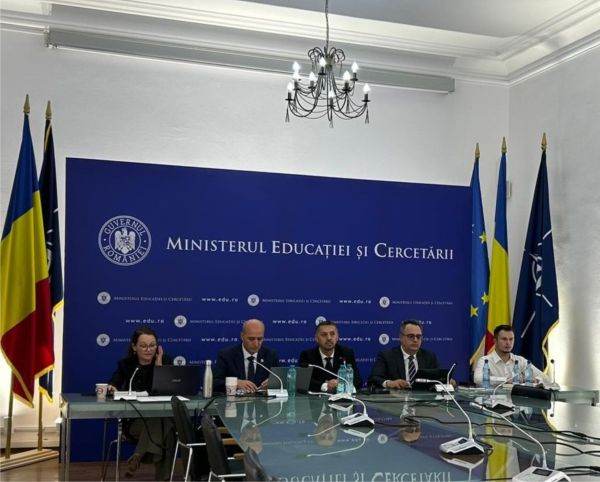The Minister of Education and Research, Daniel David, announced that the government measures regarding the 10% reduction in salary expenses will not apply to pre-university education. The statement comes amid concerns among teachers after discussions regarding a possible budget adjustment.
The minister stressed that schools and teaching staff will not be affected by the new measures, recalling that the same had already been announced by Prime Minister Ilie Bolojan. According to him, the pre-university education sector went through a streamlining process in the summer that now allows for the protection of personnel. "In the area of teachers, in the area of pre-university education, these measures will not apply. (...) Pre-university education will be exempted, but not as a privilege, but because we took the necessary measures in advance," explained Daniel David. In contrast, at the central level - in the ministry's apparatus - there will be "probably some adjustments”, but without layoffs, aimed at reducing administrative expenses such as travel or certain bonuses.
• Pensioners remain in schools
Referring to the accumulation of pension - salary, the minister specified that this limitation cannot be applied in the education system. Over 3,000 retired teachers cover hours, especially in deficit subjects, such as mathematics, physics or exact sciences. "These teachers are not taking anyone's place. We do not have people to cover these hours. Their presence is a necessity and a plus in the system”, said David. The minister admitted that the reimbursement of transportation for commuting teachers remains a situation "unfair and outside the legal framework”. He specified that he had received numerous complaints and that the issue had been discussed with both the prime minister and the mayors. Among the solutions analyzed are the cancellation of the extension by which the funding was transferred to local authorities or the return to a mechanism managed by the ministry. "We will find a solution for next year", the minister assured.
Asked how well-trained teachers could be attracted to the system, Daniel David indicated two main directions: increasing the starting salary; "educational concentrations" that would allow the formation of complete norms in a single unit or in fewer schools. He also announced a rethinking of teacher training. Romania has gone too far towards hyper-specialization, while other high-performing states have teachers with double specialization, capable of teaching related subjects. In this regard, four-year programs in History-Geography and Biology-Chemistry have been launched, whose graduates will be able to enter directly into secondary and high school education.
One of the minister's most important announcements concerns the reorganization of rural education, where about 33% of Romania's students study. "Some rural schools work very well, others very poorly. We will have to think about reorganizing the system," he said. Two models are being analyzed:
1. Educational centers with boarding (Monday-Friday). Children from small villages could be grouped in larger centers, with a cafeteria and accommodation spaces, to benefit from full-time teachers and adequate infrastructure; 2. The "mentor school - mentored school" model. For the first time, a system in which a performing school supports a weaker one will be put up for debate, through: exchanges of experience; joint courses; online activities between teachers; transfer of good practices. The minister emphasized that the models are under discussion and that the solutions will have to be adapted according to the specifics of each county. "It's a shame that starting from a rural area you start with a disadvantage. It's up to us to reorganize the system - and that's what I'm trying to do," he added. Daniel David reaffirmed the objective of reaching a funding level of 6% of GDP or 15% of the general consolidated budget for education, a percentage provided by law but never reached. In his opinion, in the short term the priority is to stabilize the system, with increases to be applied gradually, depending on economic developments.















































